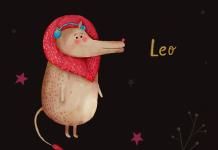Age is considered the second most important demographic characteristic. In demographics age is the period from a person’s birth to one or another moment of his life. Age is measured in years, months (in 1 year), weeks (in the first month of life), days (in the first week) and hours (in the first day).
Demographic events always occur at one age or another. Moreover, the frequency of their occurrence changes with age, i.e. is its function. Therefore, in demography, age is used as most important characteristic any demographic events. They talk about the age of death (and the average age of the deceased), the age of marriage (and the average age of marriage), and the so-called. childbearing age, etc.
In addition, age is a differentiating feature for distinguishing age statuses.
Age status (child, teenager, young man, adult, elderly, etc.) is the position in society that a person occupies depending on age. But even though age is usually determined based on date of birth, age status is a broader concept. In addition, in any society, age roles, or a set of expectations associated with age status, are established. For example, it is assumed that attraction to people of the opposite sex should begin to manifest itself in adolescents; Children between the ages of 5 and 16 are expected to go to school; It is believed that a person’s active labor activity continues from the age of 19 or 20 (depending on qualification requirements) until the age of 60. It is clear that society sets different standards for people belonging to different age categories.
Examples formal age norms are:
– get married at the age of 18
– buy alcoholic drinks from 18 years of age or 21 years of age
– retire at a certain age
– to be elected president (from the age of 35), etc.
A clear example of formal age norms is the transition of schoolchildren from one class to another in accordance with their age (if their abilities are generally neither lower nor higher than the average age level).
Other age norms are less clearly defined; they are among informal. The exact ages for finishing school, getting married, having children, and starting work are not established. However, our society has developed very definite ideas about when these events should take place. For example, it is expected that after graduating from high school (that is, at the age of approximately 17 years), people should immediately look for a job or continue their studies at college (university). In fact, research suggests that there is a “social clock” or some kind of “schedule” that tells people whether their lives are going according to a generally accepted pattern. They probably feel anxious about falling behind this schedule.
The idea of a “social schedule” is formed under the strong influence of age norms. Social stereotypes have a deep meaning: if a woman has not married by a certain age (for example, by 30), she is under pressure to get married as soon as possible so as not to “remain an old maid.” The “slacker” stereotype puts pressure on a man who is in no hurry to choose a suitable job and start a family. And when we are told: “Behave as you should at your age,” we all (children, teenagers, adults) feel that we are out of step with everyone else and must change our situation.
Ideas about age periods are conventional and formed quite recently. Now it is customary to distinguish the following stages: infancy, childhood, adolescence, youth, maturity, old age, old age.
Concept of other stages life cycle“invented” relatively recently. Previously, little importance was attached to the stage we call adolescence, and adulthood was not divided into separate stages. It continued until the person could no longer work normally due to illness or senile infirmity. Old age, which in the past meant not being able to work as well as others, has become widely associated with retirement.
Modern ideas about age periods in a person's life are summarized in Table 4.1.
Table 4.1
Demographic age classification
“When Jesus began His ministry, he was about thirty years old,” says the Evangelist Luke (Luke 3:23). 30 years is the age of the Sun at its zenith. This is no longer the sunrise of ripening youth and not the beginning of the sunset, where in maturity the coming old age is already guessed.Old age did not threaten Christ. Old Man Christ is impossible. He is the Lamb being sacrificed, and the Lamb by definition must not be old, lame, or sick. Therefore, He is young, perfect, beautiful and sinless.
“You are more beautiful than the sons of men; grace poured out from Your mouth” (Ps. 45:3).
But infancy, childhood, adolescence and youth in their turn were lived by Jesus Christ. And once lived, then these ages of human life were sanctified by the life of the God-man. Before Christ, wisdom was boasted mainly by gray hair and experienced old age. Childhood seemed innocent but useless. Youth was noisy, daring and lustful. Maturity leaned toward worldly pragmatism. She said that the law of the Lord is good, but added in a whisper: “We count the arrogant happy: those who practice iniquity do better, and although they tempt God, they remain unharmed” (Mal. 3:15).
We still suffer from all these diseases because we do not want to be healed in Christ and by Christ. The doctor has come, and whoever wants can go for healing. But those whose hearts are hardened, whose ears are hard to hear and whose eyes are closed, those, says the Lord, “will not understand in their hearts and will not be converted, so that I will heal them” (Is. 6:10).
Childhood is characterized by weakness of mind and ignorance. Regarding items Divine man can remain a perfect child even into old age. But with proper development, childhood should turn into adolescence, and this adolescence should have a Book in its hands.
At the age of 13, according to Jewish tradition, a boy becomes a “son of the covenant.” In the presence of adults and - of course - parents, he reads a passage from the Book of the Law. From this moment on, he is considered an adult and obligated to fulfill all the commandments. Childhood—and with it ignorance—is over.
We just see the boy Jesus in the Jerusalem temple at the age of 12, that is, less than a year before coming of age. The Lord also does not preach anything, because due to his age he does not have the right to do so. But He “sits in the midst of the teachers, listening to them and asking them questions” (Luke 2:46). He is the Word who came into the world to deliver us from speechlessness. While His carnal age requires silence, He remains silent. But He also silently heals human nature. Jesus was a baby, which means infant holiness is possible. He was a youth, which means that adolescent holiness became possible, and after it both youthful and mature.
Youth is hot and passionate. “Flee youthful lusts,” Paul tells Timothy (2 Tim. 2:22). Youthful lusts are all that gives rise to excess strength in the blooming flesh. Excess strength with inexperience in life.
There is no lust in Christ. And not because He curbed the flesh with abstinence, but because His sinlessness is rooted in His Divine nature. This is why He became our Brother and adopted us as sons to His Father, so that His properties: wisdom, meekness, chastity - would be communicated through faith and grace to us - His many relatives.
Christ lived in small and insignificant Nazareth, hearing about which people whistled: “Can anything good come from Nazareth?” It was the same little one locality, called a “city”, but more like a village where everyone knew everyone. In villages, the walls of houses are transparent. People live in front of each other. And no one could say anything reprehensible about Jesus Christ. The whole world was silent, like a mute, when Christ asked: “Which of you will convict Me of sin?” There will always be silence on this question, because “He committed no sin, neither was deceit found in His mouth” (1 Pet. 2:22).
After childhood with its foolishness and youth with its mistakes, a person awaits adult life with your worries and problems. In the parable of the sower, this is called “the cares of this world, the deceitfulness of riches, and other desires” (Mark 4:19). When they enter the heart, they “silence the word.”
A person at this age theoretically knows that “he will not live by bread alone,” but he puts aside “verbs coming from the mouth of God” until later, while he fusses over bread and what goes with bread. It begins that I.A. Goncharov depicted in literature under the title “ Ordinary history" This is a farewell to ideals and the transformation of a person into a skeptic and materialist, and sometimes into a cynic who considers himself an expert on life and an experienced person. In mature years these are the majority.
Christ heals our souls here too. It shows a person the prospect of another - eternal - life, in the light of which any wealth loses its value. It was this prospect of a different reality that gave birth in Christian history to the voluntary poverty of ascetics and the generous alms of the pious rich. To some He says: “Give everything away and follow Me.” To others (Pharisees): “Give alms from what you have.” He looks at wealth with different eyes, in which a widow’s two mites are worth more than rich donations. He brings us true freedom from arrogance, envy and vain prejudices. Now in Him and with Him you can truly become rich without those external attributes of wealth that weigh you down and irritate others’ envy.
Three diseases: unreason, lust, money-grubbing - need to be treated throughout your life. They do not go away with age, like childhood illnesses or the dreams of youth. Although each of them has its own age. And Christ, completely healthy both in soul and body, inseparable from the Father and free from all sin, came precisely to communicate to us, the sick, His health. And He goes to the Cross no earlier than having passed through all human ages preceding maturity.
He played in childhood and worked in youth; He drank water and breathed air; He felt hungry and muscle fatigue. He absorbed all human life into Himself and lived it without doing anything that angers the Father and separates Him from Him, that is, without sin.
He does not need to wait for old age, and even this is hardly possible in relation to Him. According to Divinity, He is co-eternal with the Father and “ancient of days.” And in terms of humanity - “When Jesus began His ministry, he was about thirty years old.”
Elderly people in our country various reasons are in difficult life circumstances. Most have minimal pensions, savings burned during the collapse of the USSR, everything is bad with health, medicines are expensive. And if there are no children or grandchildren yet, there is no one to ask for help.

In the current situation, with daily changing events, you do not immediately have time to adapt to new conditions. Finding yourself in home isolation, in a state that is unusual for you, it can be difficult to maintain peace of mind and not succumb to negative thoughts. But by following a few tips, you can walk this path as calmly and with a sense of security as possible.

Schools and kindergartens are closed, and with them bars, museums, cinemas, gyms and playgrounds. Planes don't take off. State borders are protected. To slow the global spread of coronavirus, people are isolating themselves socially, avoiding contact. Measures such as remote work within one’s own four walls do not prevent many from falling into crisis - both privately and economically. What remains is uncertainty, fear of existence and loneliness. But where there is shadow, there is usually light: the pandemic and “social distancing” are bringing many positive side effects.

The number of infection cases is increasing every day. Kindergartens and schools are closed, events are cancelled. Transport operation is limited. Public life came to a standstill. People are afraid and stock up, just like before the start of the war. Information is not always true, and this sometimes causes panic. People are afraid for their loved ones, for themselves, they are frightened by the uncertainty of the future. How to deal with this?

The world has changed dramatically over the past decades, and the rate of change will only increase in the near future. But a person does not change as quickly as the reality around him.

“I'm insecure. I don't know anything and I don't understand anything. And I’m generally a loser...” - this is what we sometimes think to ourselves. Chances are that if another person says something like that to us, our anger will be transferred to them. But we cannot be offended on our own. It is difficult to explain why we tend to look within ourselves negative qualities. The reason may be our upbringing or heredity. In any case, there could be many reasons for this.

The quarantine due to the spread of coronavirus has put a big end to many goals. If your plans for 2020 did not include staying at home for a month, then you need to find a way to have a good and useful time that you have. While you are wondering what to do so as not to waste quarantine and then regret it for a very long time, we suggest you familiarize yourself with several useful online courses. After all, the quarantine will end, the epidemic will recede, and the knowledge gained will remain with you forever.Lifestyle

Bans on crossing national borders, leaving cities and staying at work are among other measures that governments around the world have been forced to resort to to stop the coronavirus epidemic. Being locked up for a long time can be a mental burden. How to cope with the isolation caused by coronavirus?
Soul! Her childhood, adolescence, youth, maturity, old age...
Each of us, Soul-analogs, first manifests itself in the Matter of the Physical Plane of the Earth, as a fragmented Consciousness, first as a “young” Soul, most concerned not about other people or its own evolution, but only about itself and is mainly occupied with lessons of adaptation and survival in new conditions of existence associated with ambitions, new structures and success.
“CHILDREN’S” Souls usually do not yet have enough Wisdom to make the right decisions in life, so they are often drawn into those streams where the most best conditions to satisfy their selfish desires.
IN ADOLESCENCE The soul is already learning on a more civilized basis to build its relationships not only with individuals, but also with society as a whole, paying great attention to observing the external aspects of morality, and not to its internal moral needs, which, by the way, have not yet developed in it. These Souls make up the “pillars” of the bureaucracy, the most conservative and fanatical individuals, prone to fundamentalist trends in religion, persistent and unshakable in their beliefs.
“YOUNG” age of the Soul coincides with the greatest development and manifestation of the lower “ego” in the embodied personality, with her desire to establish herself in society at any cost, at any cost, in order to quickly win her “appropriate” high place in it, which gives her numerous material privileges, power, success, fame, wealth, position and public recognition of her uniqueness.
It is precisely for the “young” Soul that a categorical assessment is characteristic, such as “good - bad” (moreover, “good” is only what contributes to the achievement of success, and everything that interferes with this is “bad”), inflexibility in one’s own judgments about things , with which she is only superficially familiar, automatic censure and contempt of any person who does not agree with her judgments, etc. Financial tycoons and political leaders, successful businessmen, military upstarts, highly specialized scientists and careerists - this is the most common field for self-expression of “young” Souls.
They study the structure of the world and its laws not for their own sake. spiritual growth, but only to learn how to apply all this knowledge in practice with the greatest material benefit for oneself. At the same time, they always try to give their purely selfish activities some kind of “decent” sign and attractive moral coloring. Most “charitable” foundations are headed by “young” Souls.
Another pronounced feature of them is that they categorically reject even the very possibility of the existence of the “Life after death” phenomenon, because they very strongly identify themselves with their dense shells, which give them the opportunity to enjoy the benefits of the Physical Plane. It is they who are desperately searching for the composition of the “elixir of immortality”, which would allow them to live indefinitely in a physical body. It is they who would rather and willingly allow themselves to be frozen for decades than to believe in at least the partial possibility of their conscious existence in a subtle body.
As for the “MATURE” Soul, a lot can be said here. In general terms, a “mature” Soul has already well mastered the experience of the illusory nature of any public success, wealth and power; it is less aimed at its lower “I”, and more at the desire to understand all manifestations of itself in the world and peace in itself, and to increase based on this understanding, the level of one’s own awareness. For them, their inner world is much more important than success, fame, and material well-being.
A “mature” Soul is more open and sincere, more conscientious, altruistic, friendly and kind towards others, less aggressive and militant, unforgiving, compassionate and easy-going. She knows how to sincerely accept and give love, she knows the value of true feeling. Her life, especially in the second half, is much more intense in its emotionality than that of the “young” Soul. This stimulates the development and flourishing of many creativity, the discovery of talents in many areas of art, philosophy, and culture.
A “mature” Soul is fully aware of the illusory nature and frailty of this world and does not get hung up on it, relying on great opportunities and prospects in its development after disembodiment. She is no longer at all afraid of the fact of death, with which she, on the contrary, associates her subsequent spiritual ascents and hopes for better conditions for spiritual improvement. She gravitates towards non-traditional religions, towards expanding her own esoteric knowledge, without limiting her research to strict frameworks and criteria.
“OLD” Souls are characterized by a detailed study of many different religious movements and beliefs, from each of which they choose only what their own inner experience tells them, thus uniting all existing systems into one, universal one. They completely lack fixation on anything, have a highly developed sense of self-criticism and an easy, balanced, even humorous attitude towards any problems, of any scale.
They prefer to go with the flow of life rather than fight against unfavorable circumstances. They do not identify themselves with anything earthly and adhere only to high, especially sublime Ideas. They prefer not to read tedious lectures, but to teach other people by personal example...
Marina NikitinaChildhood, adolescence, youth, maturity and old age begin and end differently. But it is worth first identifying some boundaries that separate one stage of development from another. Otherwise, it is difficult to figure out which stage is notable for what.
Youth and maturity: where is the beginning, where is the end?
It is customary to separate youth from human maturity according to the level of physical and psychological development. Adulthood is considered to be divided into three stages:
Early (begins at the age of 20-23 and continues until the age of 30) – youth.
Average (lasts from 30 years to 60-70 years) – maturity.
Late (starts after 60-70 years) – old age.
Have you met people who look or act beyond their biological age? For example, a girl with a wise, serious outlook on life or a man with gray hair who has been hit by a “demon in the rib”? Such people do not fall into the generalized classification presented above. There are sad cases when one event shocks so much that it adds several years or decades of life experience to a person in one day. That is why the boundaries between ages are arbitrary. Therefore, further, when comparing the qualities of different age life periods, passport age will not be taken into account.
Youth is a period of a person’s life when childhood no longer has power over the mind, physical development has ended (the body has formed). This is the right cut life path to find a life partner and start a family. And also for productive work for the benefit of society, independent thinking, formation of a worldview, and creativity. Although the latter - creativity - is practiced at any age, it is precisely in young years that creative productivity is great.
Maturity is the longest period of time, occupying a significant part of the entire life span of each person and characterized by the highest level of development of spiritual, emotional, and intellectual abilities. As for the spiritual level, this is a controversial philosophical controversial question.
Characteristics of a person's youth
The leading activity in the period up to thirty years is professional. The individual tried several types of work, which allowed him to choose his preferred area of activity, although this is not always the case.

Also at this age, social maturity begins, manifested in the formation of moral principles associated with the assessment and acceptance of social norms and rules of behavior that are close to the individual. Social significance increases and some life experience accumulates, and appears.
The sphere of cognition, mental activity, is characterized by the peak of its development, increased to the personal maximum limit by the volume of memorized information. The verbal component of memory is quite developed. What is remembered in youth is well preserved in a person’s long-term memory.
In contrast to youth, a young individual develops more perseverance, since energy is directed towards analytical mental activity. It becomes possible to completely concentrate your attention on the selected object or process, conducting your own “mental research”. A person can build logical chains and, combining life experience with theoretical, dead knowledge, become convinced in practice of the correctness or falsity of judgments previously interpreted by adults. The synthetic processes of the brain are in a “blooming” state during youth.
Since the period up to thirty years falls on the beginning of the peak of sexual activity, it is no wonder that at the same time auditory and visual sensitivity intensifies and the movement center is activated. In the young period, the phenomenon of “age conservation” is noted, which consists in a “frozen” assessment of one’s age after thirty years. This means that a person who has reached the milestone of adulthood at thirty years old begins in subsequent periods to inadequately estimate the number of years he has lived, namely, he preserves his age at the thirty-year mark. The higher the age, the more years the age is underestimated from the nominal one.
Most young people try to conform to the generally accepted ones in order to fit into the flow of life, while at the same time, issues are resolved using a creative component.

A young man who has passed his youth tries to conform to the social norms accepted in society, or to reasonably deny them. An increase in willpower is observed under favorable conditions for personal development against the backdrop of a clash of interests between the ideal idea of the essence of one’s own personality and the real individual.
It is during youth that people try on different social roles. According to psychologists, a crisis of youth or identity occurs - a conditional period characterized by the first disappointments and awareness of the finitude of human life, as well as the discrepancy between the desired and real state of affairs. As a result, paranoid states, emptiness, and dissatisfaction may occur.
Characteristics of human maturity
According to the chronology of human development, as noted above, maturity is a blurred period of human life, which covers the period from the end of youth until the beginning of old age. Regarding professional activity, during such an important period of life there is a flourishing of activity at work and an upsurge in career. subject to final formation, after which change occurs reluctantly and rarely.
IN psychological science It is generally accepted that development ends in the mature period of life, so some experience calm satisfaction, while others experience depression and sadness in the absence of any realization of personal or professional potential.

Against the background of the past years, the ability to rule and successfully organize the events and work of people and teams increases, therefore it is the mature, and not the young, who are hired as administrators, directors, and senior managers. And they cope more successfully with the tasks assigned to them. An adult can and wants to build a system of values for his own personality that is consistent with the generally accepted one, and prefers to discuss the nuances of this model when the need arises. There appears a tendency to abstract philosophical reasoning, which is characteristic of adulthood.
In a mature person, several psychological individuals usually coexist at once, taking on different social roles. The need for such a large “sprinkling” of the individual is dictated by the formed obligations that “keep” the person in their networks. It is quite difficult to break such ties without experiencing attacks from surprised people around you who are accustomed to this particular state of affairs.
Youth and maturity: arguments
Arguments in favor of youth:
The difference or discrepancy between a person’s real and “mental” age.
The inner world of a young guy or girl is undergoing changes and can be flexible, which is useful for understanding some complex life issues and forming an unconventional attitude towards reality.
You are twenty-five, which means you still have everything ahead. The whole world still obeys the rhythm of the heartbeat and just choose among an infinite number of possibilities.

Sexual activity of both sexes is in excellent condition.
Youth means a refusal to care about responsibility, although if you have children, the level of this indicator increases. .
The young man risks listening to his intuition due to lack of sufficient life experience, and he turns out to be right.
No attachment to a specific course of action, easy acceptance of changes
Following the not yet forgotten rainbow dreams left over from a tender young age.
Arguments in favor of maturity:
A person already knows the price of youth, mistakes and inflated demands.
Stable attitudes and rules that were learned in youth become a kind of unshakable “pillars”, thanks to which a mature individual feels protected in a changing world.
The ability to translate plans into reality is limited by the factor of having children. In addition, there are unpleasant obligations, sick or old relatives, decreased strength (physical and moral).
Sexual function in women continues to be at its peak, while in men it gradually decreases.

Maturity gives the right and at the same time the necessity to fully act. The number of people who have collected a lot of life experience to tell you what you should and shouldn’t do is decreasing. Nobody teaches you.
A person, wise with life experience, is able to find a similar one from his memory for each difficult life situation and predict how the matter will end. This helps maintain peace of mind and...
Refusal of illusions sober assessment life difficulties and values.
Developing an individual style of life, clothing, communication that distinguishes and sets a person apart from the mass of people and shows him in a favorable light.
There are already memories of the past, testifying to the life experiences gained.
After a number of considered features that are inherent only to youth, or that are uniquely related to maturity, it is difficult to say which is better. Yes, this doesn’t matter, because with any development of events in the outside world, there is a struggle inside everyone, or a universal calm reigns, which depends exclusively.
29 March 2014, 15:49

























